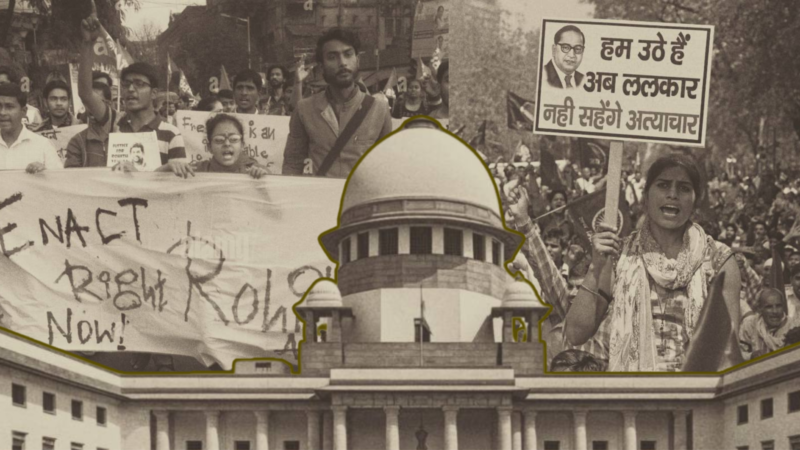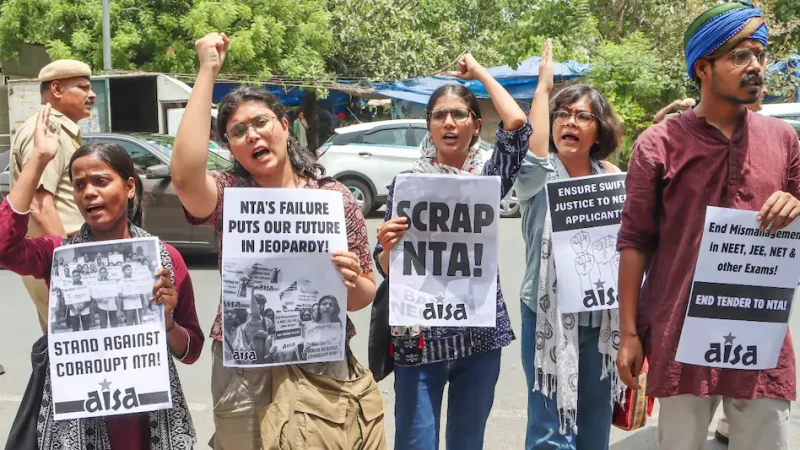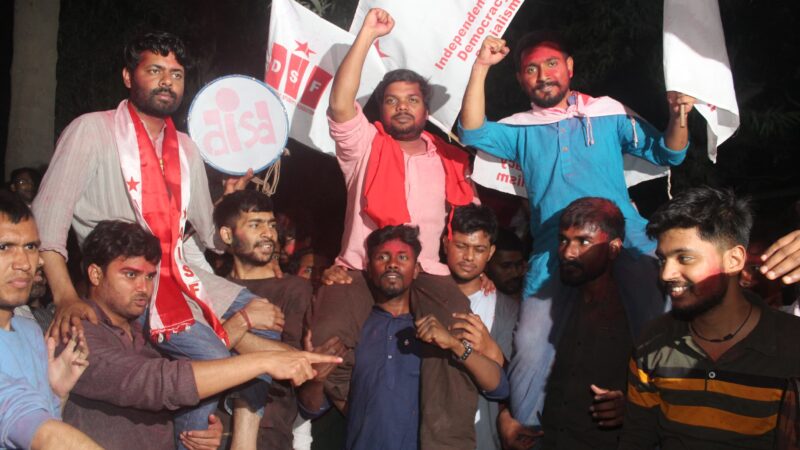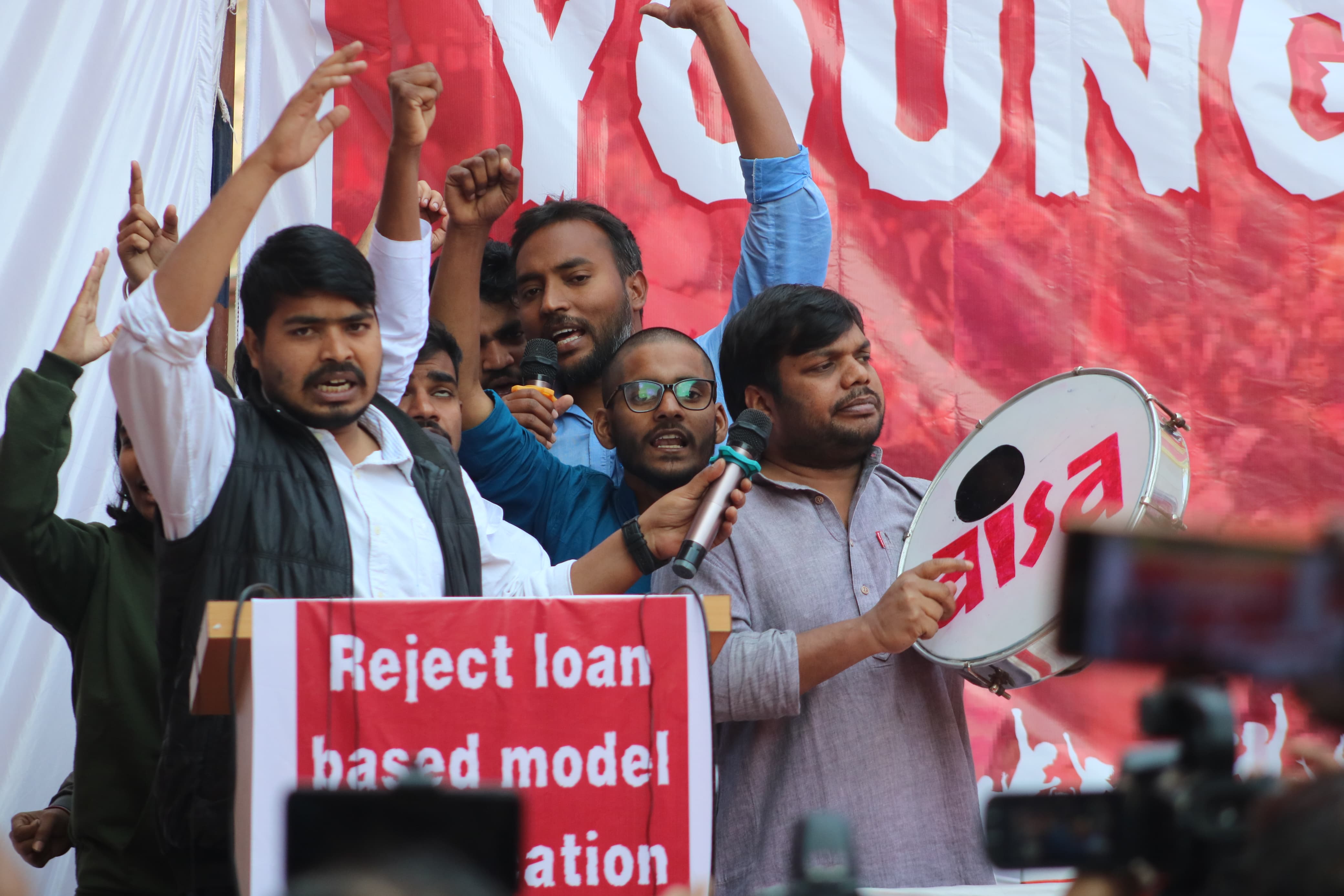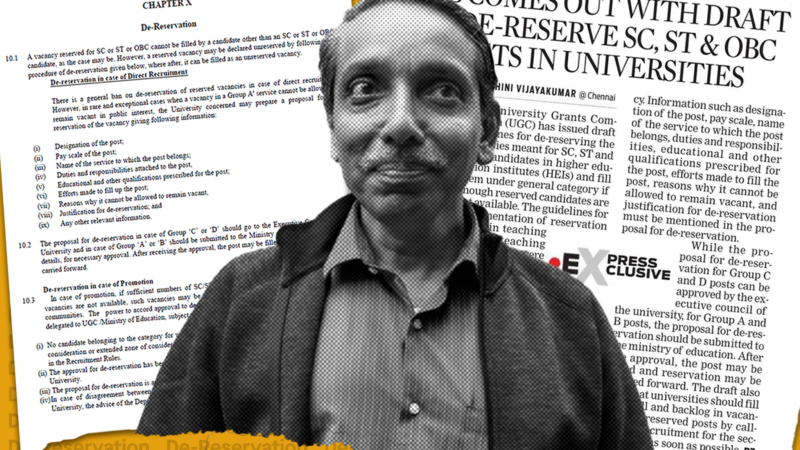Budget 2023: A betrayal of the people’s expectations

The union budget for fiscal year 2023-24 was presented on 1st February by the BJP-led centre. After the presentation of the budget, it is clear where the loyalties of the current regime lie. All the numbers and percentages in the budget add up to only one thing – boot licking of the capitalist giants who fund the environment of hate and destruction in this country.
The budget comes a few days after the Oxfam report that shows that the richest 1% of the population owns about 40% of the wealth in this nation. Yet, the budget presents nothing for the poor people, neither does it mention any steps to control inflation. It fails to reassure the youth of this country with jobs and leaves them feeling insecure for their future.
One of the sectors most affected by the pandemic was education. Schools became more inaccessible, and gaps in learning reached extreme heights. In times like these, it is reasonable to expect that the government shall take steps to undo the harm done in the past few years. Instead, only 2.5% of the total budget was earmarked for education, which is not even half of the 6% recommended by the Kothari commission. Although the allocation to education is more than that of last year, we must remember that the government actually spent less on education than it had originally planned. It would come as no surprise if even the 2.5% of allocated money is not put to use.
Unemployment in India is at an all time high, the crisis of joblessness could have been intervened through the government’s efforts in the Budget. However, the job crisis failed to find any mention in the budget speech. What we found instead was token announcements, like every year. Instead of working on the unemployment crisis, they worsened it by cutting funds from the MNREGA scheme.
The allocation for MNREGA has come down to ₹60,000 crore even when 25% of the money is being spent on clearing dues. The amount has almost halved since 2020-21, and it appears as a slow death is being administered to the scheme.
The Rural development ministry also faced the brunt for the government’s capitalist policies, the amount allocated is 13% less than the estimated expenditure.
Despite making various empty promises, it is clear that the government is not concerned about spending on health, and improving the health care infrastructure of the country. The revised expenditure on health for last year was Rs 77,351 crore, which was substantially lower than what was planned, that is Rs 86, 606 crore. So even if the government has allocated Rs 88,956 crore for health care, only time will tell if they intend to spend it in a way that will revamp the health care structure that is breaking down.
Allotment on food subsidies and midday meals has also drastically reduced. The budget estimate for this year (Rs 1,97,350 crore) is much lower than the revised estimate for last year (Rs 2,87,194 crore). The money allocated to midday meal schemes in government schools is also more than ₹1000 crore lower than last year’s revised estimates.
The government’s favours towards businesspersons, industrialists, and capitalists becomes clear through the budget, as according to the new tax scheme, a lower surcharge of 25%, as against 37% would be applicable to the super rich. This would reduce the tax to 39% from 42%.
The finance minister in her speech highlighted seven priority goals for this years fiscal growth – inclusive development; last mile development; infrastructure and investment; green growth; youth; and financial sector. However, most of the key announcements made were on infrastructure and investment, and the financial sector. All other goals seemed to be unimportant for the minister.
Despite the fact that unemployment in the country is at its highest ever, with no job vacancies around the corner, more and more hungry people sleeping on the streets, poverty escalated, the system of health and education in shambles, there was close to no mention of these issues in the finance minister’s speech. However, considering the amount of poverty, unemployment, and inequality that has made its way through the structures of our country, we need structural reforms beyond budgetary allocations to make substantial changes.
